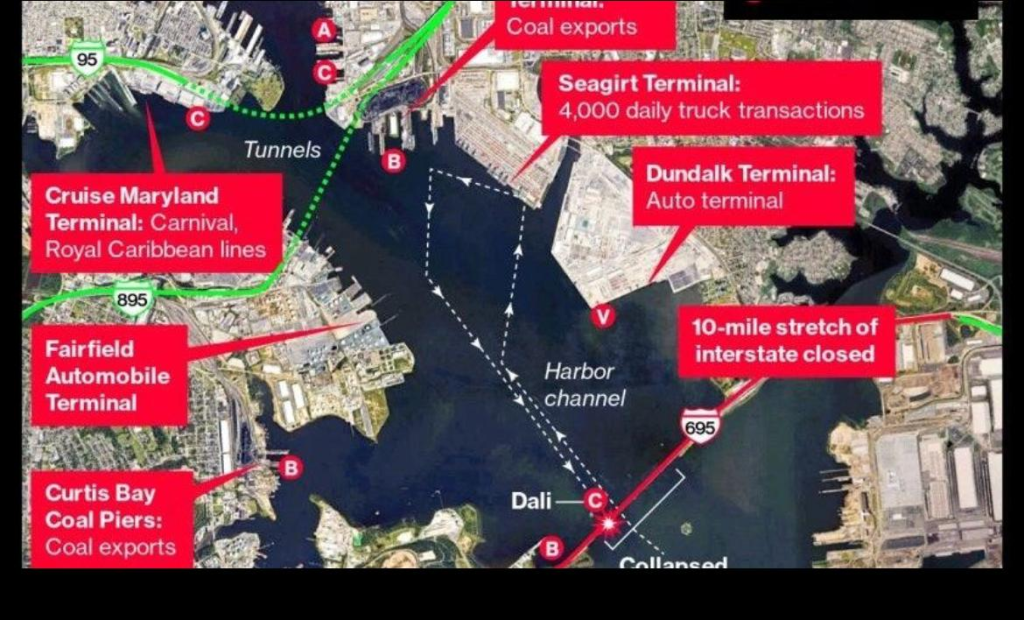
By Skylar Romines
Could Singapore-based Grace Ocean and shipping giant Maersk look to rely on an obscure law from 1851 to reduce liability for losses caused by container ship Dali crashing into the Francis Scott Key Bridge?
The path to do so is the same law invoked by the owner of the Titanic to limit payouts after the ship sank in 1912.
Grace Ocean is likely to face lawsuits from multiple directions, including from the bridge’s owner and the families of six workers who were presumed dead after a search in the Patapsco River.
Bloomberg Intelligence has said Maersk may not be liable as the Danish company had no crew on board, and the ship was operated by a charter company.
The ship owner’s insurance is likely to help the company through the legal risks.
Nearly 90% of the world’s ocean-bound cargo is insured by an arm of the International Group of Protection and Indemnity [P&I] Clubs, which oversees the 12 major mutual insurance associations for ship owners.
A key to determining any insurance claims will be proving the cause of the accident: negligence, mechanical failure, or something else.
This ship is insured by the Britannia P&I Club, which is a mutual insurance association that is owned by several shipping companies.
A law from 1851 could lower the potential exposure by capping the ship owner’s liability at how much the vessel is worth after the crash, plus any earnings it collected from carrying the freight on board, per Martin Davies, the director of Tulane University’s Maritime Law Center.
The law was designed to prevent shipping giants from suffering insurmountable losses from disasters at sea.
An eight-figure sum, while still hefty, would amount to “considerably less” than the full claims total, Davies said.
Federal courts have jurisdiction over Maritime disputes due to a clause in the US Constitution.
Aside from being incredibly sad for those who lost their lives and those close to them, this is yet another high visibility incident that magnifies the fragile nature of global supply chain risk.
I’m no legal scholar by any stretch, so I’ll stick to common sense forecasts: this is yet another win for nearshoring and less American dependence on foreign imports, which was already a major trend for the foreseeable future.

